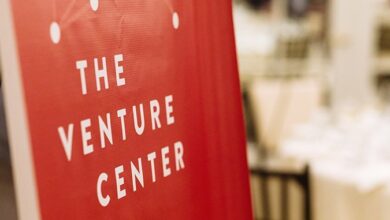Entrepreneurship
‘Research Is Intellectual Entrepreneurship’: Democratizing research with Lumiere | India News

Dhruva Bhat and Stephen Turban, both Harvard College graduates, co-founded Lumiere Education. When they started Lumiere, Dhruva was a PhD student at Oxford.
I sat down with Stephen, Lumiere’s co-founder, and we discussed the mission to connect high school students with research opportunities. What I didn’t anticipate was a deep dive into education, intellectual lineage, and the audacity to pursue unconventional paths.
This is a note on Stephen’s and my conversation.
Stephen’s granddad was a Holocaust survivor, and both his dad and he were born in Hawaii, where education was given a lot of importance. “My dad grew up quite poor, but got really into reading as a kid,” he shares. “In college, he got really into doing research at a psych lab. That was kind of the beginning.” This family lore became the stuff of life in the Turban household.
Which is why it shaped Stephen’s own worldview. “It’s kind of like family tradition around education, something that’s really important,” he reflects. Ultimately, this exposure to education started Stephen’s own reverence for ‘learning as a transformative force.’
But it was a high school exchange year in Taipei that changed Stephen’s worldview. “It totally changed my benchmark for what it means to be hardworking,” he recounts, still awed by his Taiwanese classmates’ relentless work ethic. “I went from being pretty good to bottom quartile.”
These formative experiences laid the groundwork for Lumiere, an endeavor to make research accessible to students worldwide, and particularly in countries like India and Vietnam. “There are a lot of great ideas out there,” he observes, “but not many people who are able to bridge ideas in different contexts.”
Lumiere, then, is his attempt to build those bridges—to democratize not just access to academic resources, but immersion in the rich intellectual traditions that shape groundbreaking researchers. “What matters a lot more is what is the intellectual lineage that you’re being shaped in, and who you are learning from,” he emphasizes. So I found it quite intriguing that Stephen praised the Indian gurukul system and the “Guru-Shishya Parampara” as a unique and effective intellectual lineage.
This focus on mentorship and lineage is central to Lumiere’s model. By pairing high schoolers with PhD candidates and postdocs worldwide, Stephen hopes to create conduits for transmitting tacit knowledge and unspoken rules of academia. “The mentors’ perspectives play such an important role in shaping a young researcher’s perspective on what they can or can’t do,” he explains. “These young students essentially become a part of this lineage that the PhD student or the postdoc or the professor is a part of.”
Of course, there is the question of whether high school students are even equipped to make meaningful contributions to serious research. Stephen acknowledges the limitation in domain expertise and ‘perceived legitimacy’, but he highlights the students’ unique strengths: a tendency to think across disciplines, a fresh perspective, and in some cutting-edge fields like AI, technical ability.
So what does Lumiere look for in its applicants? Intellectual curiosity is supreme. “We’re looking for someone who’s just nerding out on this topic,” he grins. Academic performance matters, but more as a signal of diligence and the ability to learn quickly. Equally crucial is a capacity for independent work—a prerequisite for the oft solitary pursuit of research.
As for the skills aspiring researchers should cultivate, the founders’ advice is to “get comfortable with ambiguity.” Stephen stresses, “The skills of really successful researchers are those who are sitting in ambiguity and excited by the prospect. When you notice something that’s kind of ambiguous, you should be like, let’s go explore that.”
Looking ahead, Stephen and Dhruva envision Lumiere evolving from a “3% supplement” to a student’s education, to a more integral component of it. Deep partnerships with schools, a comprehensive curriculum, and a program so immersive it could constitute “90% of someone’s learning experience” would be the goal.
But I was also curious about why there aren’t as many people in research. “When you are a researcher, you are essentially subsidizing the world with your labor.” To have policy and practical changes is the way forward to incentivize more research then.
But even as Lumiere scales up, both Stephen and Dhruva are committed to its core mission of bridging cultural and disciplinary divides. For Indian students in particular, Stephen sees the program as a chance to combine the rigorous fundamentals of Indian schooling with the creative and entrepreneurial spirit in Western classrooms. “The secondary and primary education system here [India] is really good at giving you great fundamentals around math, STEM, etc.,” he observes. “But then this piece around ‘how do you go and create, how do you build new things?’—that’s often missing.”
It’s this synthesis of tradition and innovation, of depth and breadth, that Stephen believes in. “There are so many people who are just really talented and could do a ton if they just had a few more unlocks,” he marvels.
As Stephen puts it, “Research is intellectual entrepreneurship. It’s like, ‘how do I discover something new?’” Through Lumiere, he’s not just posing that question to a new generation; he’s equipping them to answer it.
Stephen presently lives in Vietnam, and Dhruva hails from Chennai. Both have struck an incredible partnership, and it would lead them to places. I’m curious to see which ones.
I sat down with Stephen, Lumiere’s co-founder, and we discussed the mission to connect high school students with research opportunities. What I didn’t anticipate was a deep dive into education, intellectual lineage, and the audacity to pursue unconventional paths.
This is a note on Stephen’s and my conversation.
Stephen’s granddad was a Holocaust survivor, and both his dad and he were born in Hawaii, where education was given a lot of importance. “My dad grew up quite poor, but got really into reading as a kid,” he shares. “In college, he got really into doing research at a psych lab. That was kind of the beginning.” This family lore became the stuff of life in the Turban household.
Which is why it shaped Stephen’s own worldview. “It’s kind of like family tradition around education, something that’s really important,” he reflects. Ultimately, this exposure to education started Stephen’s own reverence for ‘learning as a transformative force.’
But it was a high school exchange year in Taipei that changed Stephen’s worldview. “It totally changed my benchmark for what it means to be hardworking,” he recounts, still awed by his Taiwanese classmates’ relentless work ethic. “I went from being pretty good to bottom quartile.”
These formative experiences laid the groundwork for Lumiere, an endeavor to make research accessible to students worldwide, and particularly in countries like India and Vietnam. “There are a lot of great ideas out there,” he observes, “but not many people who are able to bridge ideas in different contexts.”
Lumiere, then, is his attempt to build those bridges—to democratize not just access to academic resources, but immersion in the rich intellectual traditions that shape groundbreaking researchers. “What matters a lot more is what is the intellectual lineage that you’re being shaped in, and who you are learning from,” he emphasizes. So I found it quite intriguing that Stephen praised the Indian gurukul system and the “Guru-Shishya Parampara” as a unique and effective intellectual lineage.
This focus on mentorship and lineage is central to Lumiere’s model. By pairing high schoolers with PhD candidates and postdocs worldwide, Stephen hopes to create conduits for transmitting tacit knowledge and unspoken rules of academia. “The mentors’ perspectives play such an important role in shaping a young researcher’s perspective on what they can or can’t do,” he explains. “These young students essentially become a part of this lineage that the PhD student or the postdoc or the professor is a part of.”
Of course, there is the question of whether high school students are even equipped to make meaningful contributions to serious research. Stephen acknowledges the limitation in domain expertise and ‘perceived legitimacy’, but he highlights the students’ unique strengths: a tendency to think across disciplines, a fresh perspective, and in some cutting-edge fields like AI, technical ability.
So what does Lumiere look for in its applicants? Intellectual curiosity is supreme. “We’re looking for someone who’s just nerding out on this topic,” he grins. Academic performance matters, but more as a signal of diligence and the ability to learn quickly. Equally crucial is a capacity for independent work—a prerequisite for the oft solitary pursuit of research.
As for the skills aspiring researchers should cultivate, the founders’ advice is to “get comfortable with ambiguity.” Stephen stresses, “The skills of really successful researchers are those who are sitting in ambiguity and excited by the prospect. When you notice something that’s kind of ambiguous, you should be like, let’s go explore that.”
Looking ahead, Stephen and Dhruva envision Lumiere evolving from a “3% supplement” to a student’s education, to a more integral component of it. Deep partnerships with schools, a comprehensive curriculum, and a program so immersive it could constitute “90% of someone’s learning experience” would be the goal.
But I was also curious about why there aren’t as many people in research. “When you are a researcher, you are essentially subsidizing the world with your labor.” To have policy and practical changes is the way forward to incentivize more research then.
But even as Lumiere scales up, both Stephen and Dhruva are committed to its core mission of bridging cultural and disciplinary divides. For Indian students in particular, Stephen sees the program as a chance to combine the rigorous fundamentals of Indian schooling with the creative and entrepreneurial spirit in Western classrooms. “The secondary and primary education system here [India] is really good at giving you great fundamentals around math, STEM, etc.,” he observes. “But then this piece around ‘how do you go and create, how do you build new things?’—that’s often missing.”
It’s this synthesis of tradition and innovation, of depth and breadth, that Stephen believes in. “There are so many people who are just really talented and could do a ton if they just had a few more unlocks,” he marvels.
As Stephen puts it, “Research is intellectual entrepreneurship. It’s like, ‘how do I discover something new?’” Through Lumiere, he’s not just posing that question to a new generation; he’s equipping them to answer it.
Stephen presently lives in Vietnam, and Dhruva hails from Chennai. Both have struck an incredible partnership, and it would lead them to places. I’m curious to see which ones.



